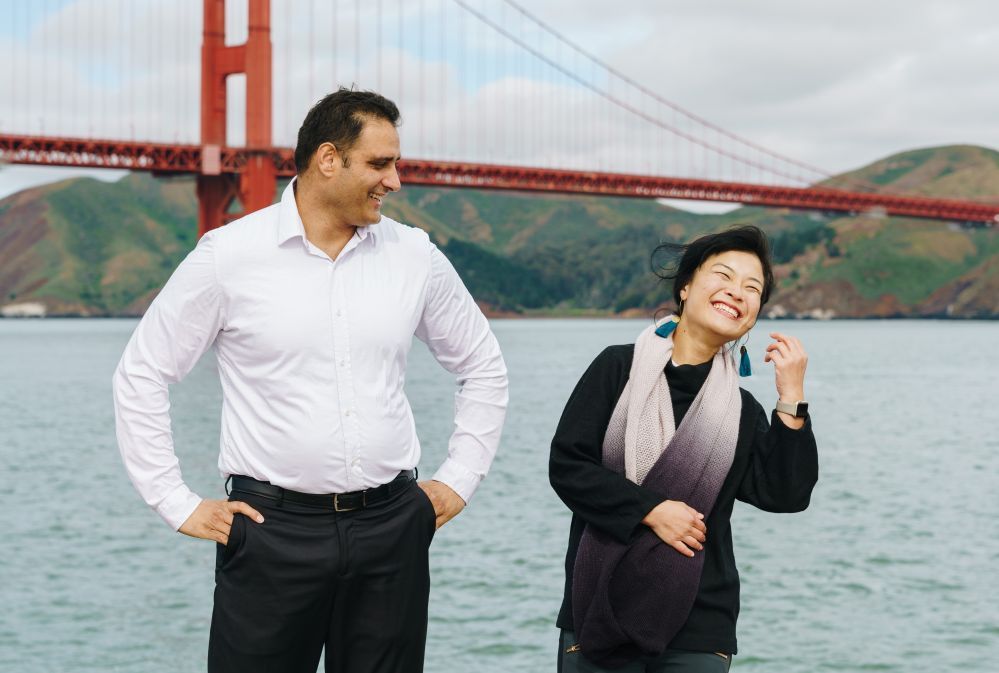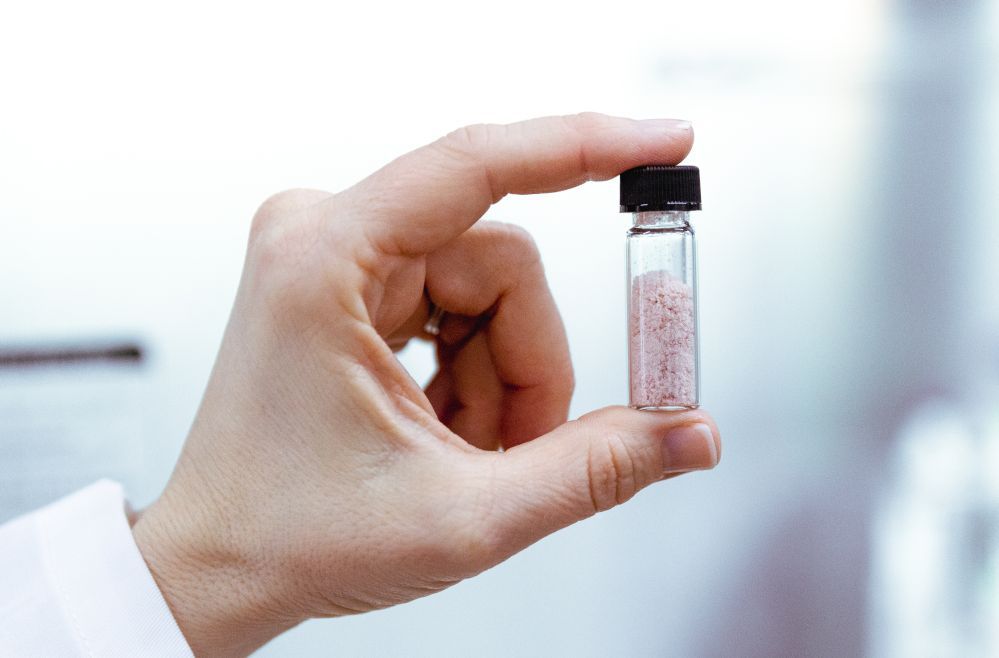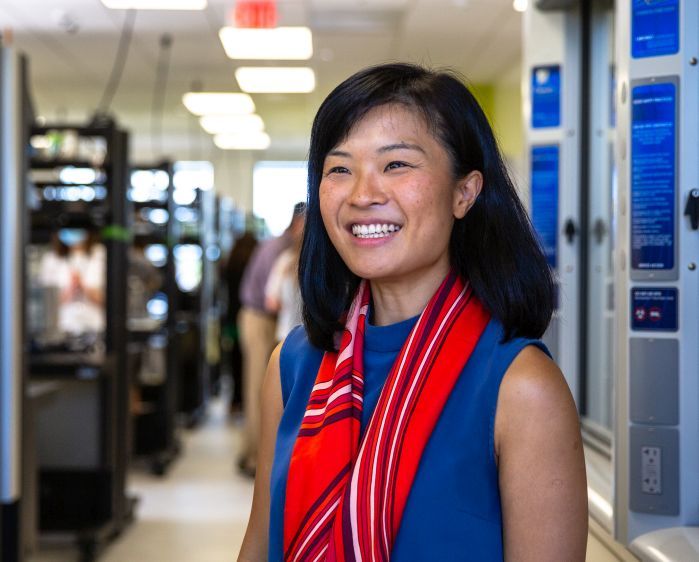Like many startups, TurtleTree has shifted its strategy over the years, narrowing its focus from cell-cultured milk (growing lactating mammary cells in bioreactors) to building a precision fermentation platform focusing on high-value dairy bioactives.
While the unit economics of manufacturing commodity dairy ingredients such as whey and casein with microbes are challenging, bovine lactoferrin — TurtleTree’s first commercial product — currently sells for $1,000/kilo, making the economics of producing it via fermentation rather more appealing, claims the startup.
LF+, slated to hit the market later this year, is the world’s first lactoferrin produced at an industrial scale via microbial fermentation, says TurtleTree, which was founded in 2019 by Fengru Lin and Max Rye and now has offices in Singapore, San Francisco and Boston.
LF+ will initially be targeted at adult nutrition markets before TurtleTree can secure approvals to access the infant formula market with the bioactive milk protein, which has benefits around immunity, iron regulation, digestive health, endurance, and muscle strength, Lin (FL) told AgFunderNews (AFN).
AFN: How did you go from being an account manager at Google to a cellular agriculture entrepreneur?
FL: A few years ago, when I was working at Google in Singapore, [cofounder] Max [Rye] came to our offices to talk about cultivated meat, it blew my mind, and we started talking about using similar methods to make milk.
AFN: You don’t have a background in biotech or industrial-scale fermentation. How challenging does that make running a precision fermentation company?
FL: It’s not easy, but it’s not just about your background. You can bring people in with expertise. Building a successful precision fermentation business is not just about strain optimization or fermentation. It’s about attracting the best people, about the regulatory, process, about finance, HR, and branding. Our strength lies in being able to connect the dots between parties [with expertise in all these areas].
I remember in the early days, one of my lowest times was when Max and I were fundraising and we met one investor in L.A. who sat down and basically said to us: ‘What business do you have running a biotech company? I’ll invest in you when you guys have a Nobel laureate on your team.’
Thinking about it now, my response is you know, maybe it’s because we are not scientists that we’re not precious about any technology. If I was a postdoc that had been working on cell-based milk technology for years, I’d probably be precious about it. I’d want to make it work, I’d know I could make it work.
But as a businessperson, I’m not married to any technology, I want to produce products that the customer wants to buy. It doesn’t matter if you have a science or a business background, at the end of the day as a founder, you need to be customer-centric.
Max is an ideas man, whereas I come from a tech and business background and I’m very organized, so we can both focus on our strengths.
AFN: When did you begin to realize that a strategic pivot away from cell-cultured milk to precision fermentation might be in order?
FL: Initially we were really gung-ho about full spectrum milk, but bovine milk is traded on the market at $2 a gallon and we couldn’t see a way to get to that point anytime soon [using lactating mammalian cells]. We were also working on producing growth factors for cultivated meat and milk to support our cell cultured milk program, but over time we also pulled away from that to focus on high-value dairy ingredients.
Whey protein trades on the market at about $1-3 per kilo and casein is around $13, but lactoferrin [a bioactive protein in human and bovine milk] is around $1,000 per kilo, so that’s where we shifted our focus. But we’re also looking at human lactoferrin, human milk oligosaccharides [beneficial carbohydrates found in mammalian milk] and half a dozen high-value dairy proteins.
Once we get to commercial scale for lactoferrin, we’re talking about 190,000-liter fermentation capacity, we will be able to get to gross profit margin neutral. And over time as we continue to optimize our strains and improve our recovery rate, everything else would be profit. We expect profitability to improve year-over-year as we move through the optimization process.

AFN: How much money have you raised?
FL: We’ve raised about $40 million so far [most recently via a $30 million series A round led by Verso Capital in October 2021], and we have a pretty good runway left, as we’ve been very prudent with our spending, working with contract manufacturers and contract research organizations. But we are looking at fundraising [again] pretty soon.
AFN: How have conversations with investors changed over the years?
Investors now care more about gross profit margins, as well as having a product on the market. They’re looking for customers with MOUs (memorandums of understanding) or offtake agreements already signed. It’s no longer about investing in an idea or in founders, it’s all about tangible progress, product development, and commercialization.
AFN: You’re based in California, Max is in Singapore, and you have people in Boston. How do you coordinate?
FL: We’ve got 39 people across multiple locations, so R&D is in California, and HR, finance and administrative functions are in Singapore, which will also be a great launchpad to the Chinese market. One good thing is that someone will always be there around the clock to answer your call or email.
In terms of my personal schedule, I’m based in California, so I have a block in the early morning full of meetings with Singapore, when it’s late evening there, and then another block after 3pm or 4pm Pacific time, when they wake up in Singapore.
AFN: Can you tell us about a particularly challenging time during your tenure?
FL: One of the lowest points was when a key employee left the company, but seeing the team coming together to fill in was so heartwarming for me. The HR function and hiring the right people is so important, and I want to thank my chief people officer Fiona Lee, who has got industry veterans to join TurtleTree, people that have 30 years’ experience, but really want to make an impact.

AFN: Titer, productivity, and yield are key to driving efficiency in precision fermentation. How have you gone about driving improvements?
FL: We have our in-house team led by Dr Amanda Fisher, who has 15 years of experience [in industrial-scale fermentation] at Novozymes and has driven a lot of the strain optimization work. But we also engage with contract research organizations, and our chief innovation officer Dr. Shou Wong scouts for the best technologies to plug into the TurtleTree ecosystem to accelerate our R&D.
Improving yield is very important, but so is recovery, that is, how much product you can pull from the [fermentation] broth, and finally percentage purity [of the final protein].
The lactoferrin expression is extracellular, so it’s being pushed out of the cell walls, but the downstream process is still challenging. We’re batch-based but we are exploring continuous processing, which would make things much more efficient, although that’s for the longer-term.
AFN: What’s the manufacturing set up at TurtleTree?
FL: We’re working with contract manufacturers for the next two years at least so we can prove our ability to execute and prove our path to profitability before we invest a large amount of capex into a plant.
We’ve interviewed about 30 contract manufacturers, and ended up with three that we are working with. We believe we will get our first commercial contracts by Q4 of this year, so we are producing for those contracts now.
AFN: What’s the go to market strategy?
FL: We’re starting off in Singapore and the US, so we’re looking at a US launch by Q4 this year and Singapore probably by Q1 of next year. China and Japan are also interesting markets for us. We’re working on getting into the infant nutrition market [which has a longer regulatory pathway], but in the first instance we’re focused on adult nutrition, as lactoferrin has a lot of benefits around gut health and iron regulation. There are also applications in sports nutrition, women’s health, and plant-based milks.
We hope to complete the self-GRAS (Generally Recognized as Safe] process in the next few weeks so we can commercialize the products in the US, and then for customers that would also like to see a letter of no objection from the FDA, we’re aiming to get that by Q1 or Q2 next year.

AFN: Several startups are making whey and casein via precision fermentation. Given what you’ve said about pricing, do you think this is commercially viable?
FL: I think it’s going to be very difficult.
AFN: Do you still think there’s mileage in cell-cultured bovine or human milk?
FL: I still do believe there is something there because there are molecules in human milk that have very high value for human health such as MFGM [milk fat globule membrane] that you just can’t make with microbes. There are also human milk oligosaccharides that cannot currently be produced via microbial fermentation because the machinery within a microbial cell is not as complex as that of mammalian cells.
So we’re still dedicating a small percentage of resources to this [the original cell-cultured milk] project, but we look at it on more of a 7-10-year horizon. In the meantime, we’re executing on lower hanging fruit via precision fermentation before getting to the full spectrum of milk and milk ingredients.
Further reading:





